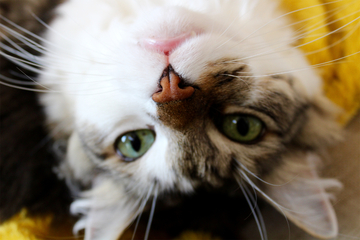Do cats lose whiskers?
If you've ever lived in a house with a cat, you will have noticed that from time to time your kitty's whiskers look a little worse for wear. Is it normal for a cat to lose its whiskers and, if not, what should you do about it?
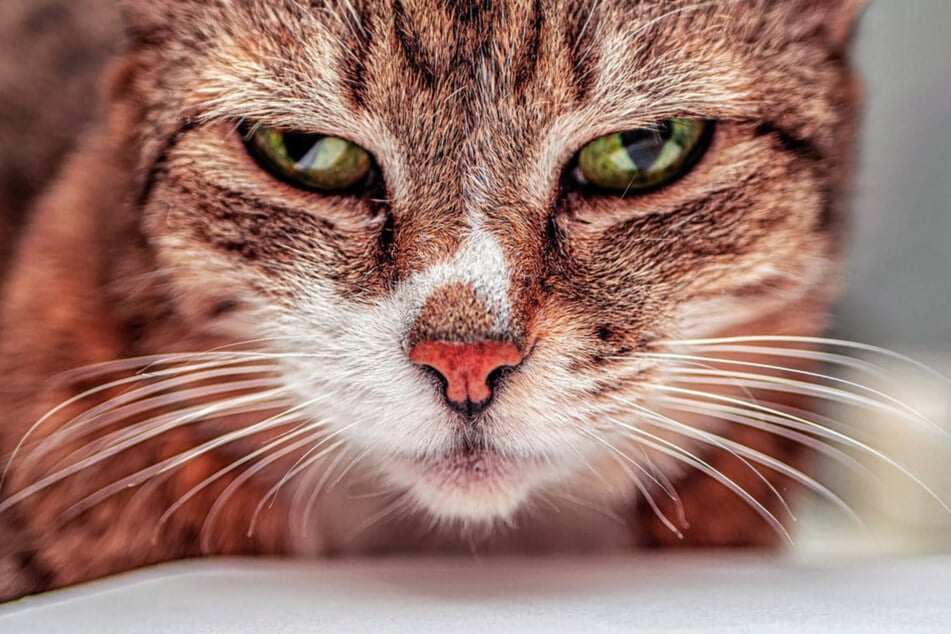
A cat's whiskers are its pride and joy, long strong strands of hair that help it keep balance and navigate a world that can all too often be a confusing maze.
Yet, sometimes, these magnificent facial spikes look a big damaged or seem to be missing, and you've likely worried about your kitty's health.
Do cats lose whiskers, is it normal, and what should you do about it?
Do cats lose their whiskers?
Yes, cats not only lose their fur, but their whiskers, too, from time to time. This is a completely normal process and is part of your cat's shedding cycle, which will see them shed large amounts of fur at certain times of the year. When a whisker falls out it will grow back just fine (though it may take about three months).
It's worth keeping in mind, though, that a cat's whiskers are an incredibly important part of their body. These tiny little hairs act as little sensors that play the role of mini radars on the side of your kitty's face. A cat's whiskers are incredibly important for their ability to hunt and orient themselves, so don't chop them off!
If you snip off your cat's whiskers, you have done something incredibly cruel and nasty. This will leave your cat stumbling around, struggling, and feeling really uncomfortable for months until the hairs grow back.
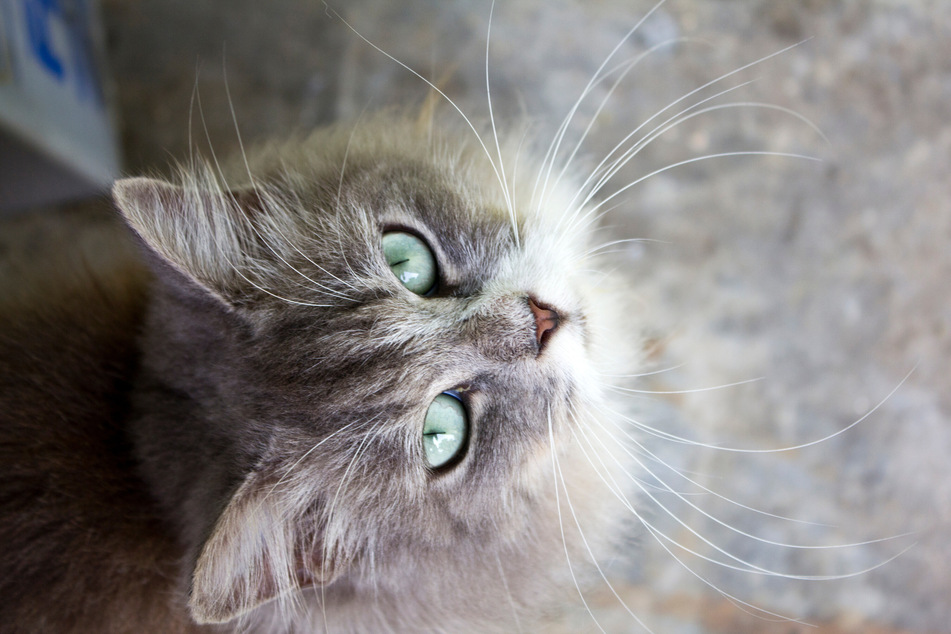
Important: If you want to know more about your cat's whiskers, we've got you covered. From what happens when you cut a cat's whiskers off to a guided summary of all you need to be aware of about cat whiskers, this is the place to be if you want to stay informed!
How often do cats lose whiskers?
Cats don't lose whiskers very often, and will generally only shed one every two-to-three months. As such, it is not a good sign if your cat's whiskers start falling out as if it were shedding fur. Your kitty's whiskers have a shedding cycle and, if that goes out of whack, problems could arise.
Keep an eye on your cat's whiskers because it might be time for medical intervention if they start to fall out at an alarming rate. This is neither normal nor safe and, as a result, you may be forced to keep your cat inside and out of trouble until it has full-length whiskers again.
Why do cats lose whiskers?
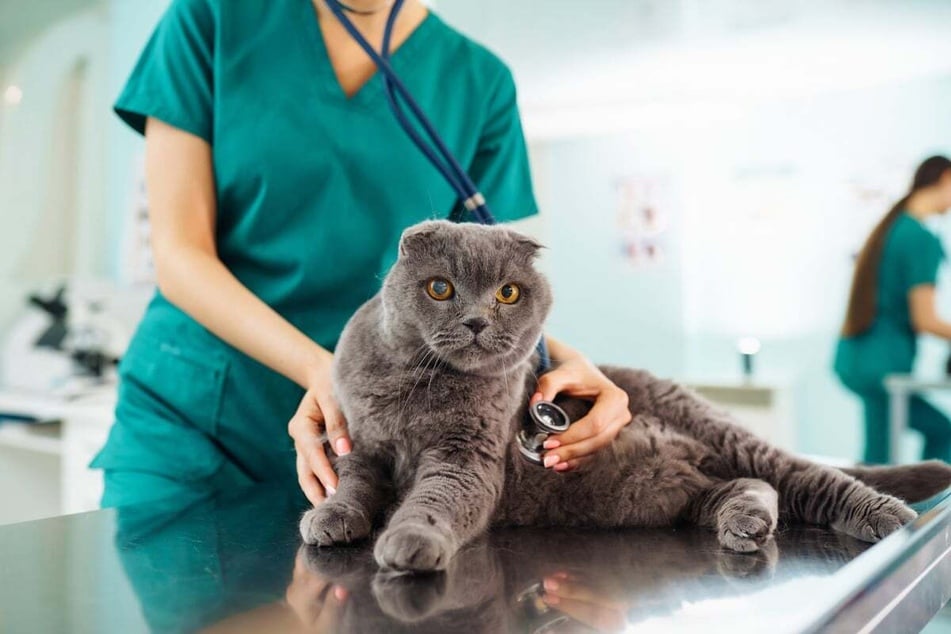
There are a variety of different reasons that can explain why a cat might be losing its whiskers. Of course, the standard reason is just simply that cats occasionally tend to shed their whiskers. If the shedding is no longer an occasional phenomenon, however, then it is time for immediate and decisive medical action.
Here are a few potential causes of excessive cat whisker loss:
- Normal cyclical hair/whisker loss
- Extreme stress
- A particularly intense shedding season, potentially caused by health issues
- Infection by parasite
- Allergies
- Diseases
- Vitamin and mineral deficiencies due to an incorrect diet
- Age-related hair loss.
Warning: If your cat is losing excessive amounts of fur or whiskers that cannot be easily explained, you need to take it to the veterinarian for a thorough check-up as soon as possible.
Do cats lose whiskers when stressed?
All sorts of factors can cause more significant hair or whisker loss, but usually, stress can be blamed. Parasites, allergies, and disease can of course trigger hair loss in themselves, but more often than not your cat's hair loss or whisker loss is due to discomfort at home, a lack of rest, or extreme anxiety.
If your cat exhibits the following symptoms, it's time for a vet visit:
- Excessive quantities of the cat's whiskers falling out.
- All the cat's whiskers suddenly falling out.
- All the whiskers on one side of the cat's muzzle falling out.
Stress and anxiety can be considered serious health problems when they come in particularly strong waves. In such situations, they should be treated like any other illness. Get a medical examination and follow the advice set out by your veterinarian – all will be fine, your kitty likely just needs some time to recover.
It's worth noting that the best way to treat stress is to figure out what is triggering the emotional reaction in the first place. Be thoughtful and observant, and read our guide on cat stress and anxiety for some extra help.
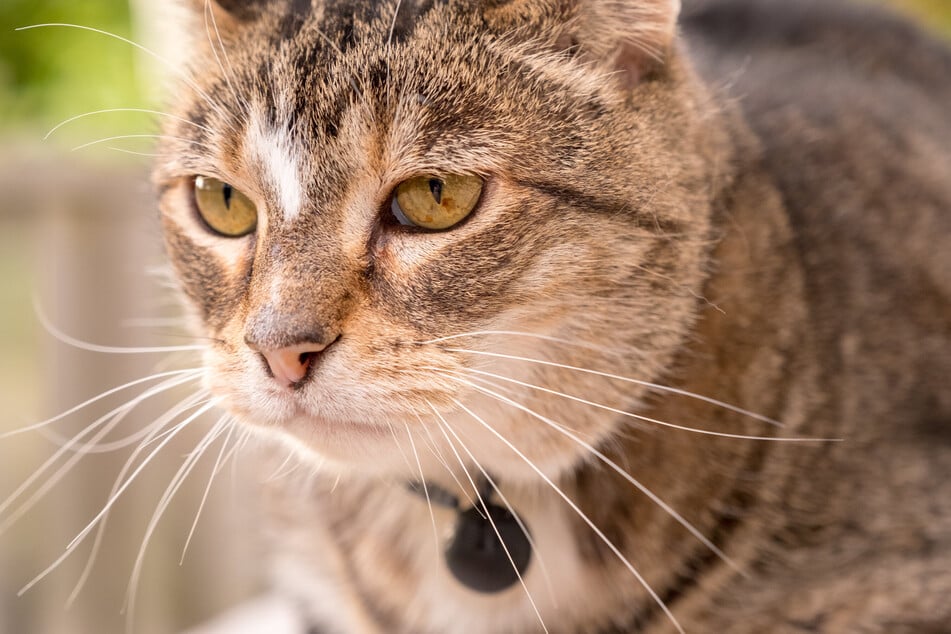
Do cats lose balance when they lose whiskers?
A cat's whiskers are extremely important to its sense of balance and mobility. As a result, if your cat lost all of its whiskers then it would be at a significant disadvantage when out and about. Your kitty may find it difficult to balance, defend itself, and interact with things, so it's best if nothing happens to your kind kitty's whiskers.
All this being said, it's important to know that whiskers should be highly flexible, robust, and hard to break. If your kitty's whiskers are brittle, this is likely due to an issue with its diet. It could be low on certain vitamins which help to keep it strong and sturdy. Alternatively, it could have eaten something that has impacted its health negatively.
When disease causes the loss of whiskers, though, you will likely notice it through the variety of additional symptoms that will show in the infected cat. These symptoms often (but not always) include:
- Dull coat
- Bald patches on its fur
- Weakness and general malaise
- Apathy and laziness
- Increased temper
Caution is always the operative word. While it might be normal for your cat to lose whiskers from time to time, make sure that you take it to the vet when things get a bit abnormal – it's better to be safe than sorry!
Cover photo: 123RF/Vadimserebrenikov
